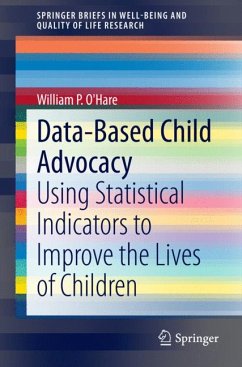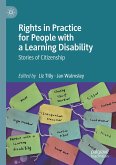This book locates, organizes and summarizes information about the use of child indicators in an advocacy context. It provides a conceptual framework that allows readers to see a wide variety of work as part of a unified field. It provides a description of key concepts and illustrates these concepts by offering many examples from a range of countries and a wide variety of applications. It covers work from governments, non-governmental organization, and academics. It describes such aspects as the use of data to educate and increase public awareness, as well as to monitor, set goals and evaluate programs serving children. A growing number of organizations and people are focusing on measuring and monitoring the well-being of children, and these child well-being data are often employed in ways that go beyond what is typically considered scholarship. Many of these applications involve some type of advocacy activity. Yet, there is very little in the literature about the use of child indicators in an advocacy context. This book provides a framework for scholars in a variety of disciplines that will help them to structure their thinking about the use of such indicators in a public context.
Dieser Download kann aus rechtlichen Gründen nur mit Rechnungsadresse in A, B, BG, CY, CZ, D, DK, EW, E, FIN, F, GR, HR, H, IRL, I, LT, L, LR, M, NL, PL, P, R, S, SLO, SK ausgeliefert werden.
Hinweis: Dieser Artikel kann nur an eine deutsche Lieferadresse ausgeliefert werden.









